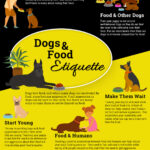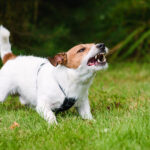Can A Dog Get Kennel Cough If Vaccinated
Does Vaccination Prevent Kennel Cough in Dogs?
As a dog owner, you want to protect your furry friend from health problems, including infectious diseases like kennel cough. One way to do this is by vaccinating your dog against the most common pathogens that cause kennel cough, such as Bordetella bronchiseptica and canine parainfluenza virus. But does vaccination guarantee immunity against kennel cough? Can a vaccinated dog still get kennel cough? In this article, we’ll explore these questions and more.
What Is Kennel Cough?
First of all, let’s clarify what kennel cough is and how it spreads. Kennel cough, also known as infectious tracheobronchitis or canine cough, is a respiratory infection that affects dogs of all breeds and ages. It is called “kennel” cough because it often occurs in places where dogs are housed together in close quarters, such as boarding kennels, grooming salons, dog parks, or animal shelters. However, any dog can catch kennel cough from another infected dog or contaminated surface (such as toys, bowls, or bedding) even if they don’t visit a kennel.
The symptoms of kennel cough vary but typically include a dry hacking cough, gagging or retching sounds, sneezing, nasal discharge, fever, lethargy, and loss of appetite. The cough may be triggered by excitement, exercise, or pressure on the trachea (windpipe), which is irritated by the inflammation caused by the infecting agents. Although kennel cough is usually not life-threatening and resolves within 1-2 weeks without treatment in healthy dogs, it can lead to complications such as pneumonia or bronchitis in puppies, senior dogs, immunocompromised dogs (e.g., due to cancer treatment or other diseases), or dogs with underlying respiratory conditions (e.g., collapsing trachea, laryngeal paralysis).
How Does Kennel Cough Vaccination Work?
Now, let’s talk about kennel cough vaccination and how it works. Kennel cough vaccines are available in various forms, such as injectable, intranasal (spray), or oral (tablet or chew). They contain either killed or modified live bacteria and viruses that stimulate the dog’s immune system to produce antibodies against these pathogens. The antibodies can recognize and neutralize the real pathogens if the dog is exposed to them later. However, no vaccine is 100% effective or foolproof, and some dogs may still get infected despite being vaccinated.
Why Can a Vaccinated Dog Still Get Kennel Cough?
There are several reasons why a vaccinated dog can still get kennel cough:
– Immunity takes time to develop: After a dog receives a kennel cough vaccine, it takes some time for the immune system to respond and produce protective antibodies. This means that the dog may not be fully protected immediately after vaccination, especially if they were already exposed to the pathogens before getting vaccinated.
– Not all strains are covered: Kennel cough is caused by multiple strains of bacteria and viruses, some of which may not be included in the vaccine that your dog received. This means that your dog may still catch kennel cough from another strain that they were not vaccinated against.
– Vaccine failure: Although rare, vaccine failure can occur due to various factors such as improper storage, handling, administration, or genetic variability among dogs. This means that even if your dog was vaccinated correctly and with a high-quality vaccine, they may still get infected for reasons beyond your control.
– Other factors: Finally, there are other factors that can increase the risk of kennel cough in vaccinated dogs, such as stress, overcrowding, poor ventilation, exposure to sick dogs or contaminated surfaces, and underlying health conditions that weaken their immune system.
What Should You Do If Your Dog Gets Kennel Cough Despite Being Vaccinated?
If your dog develops kennel cough despite being vaccinated, don’t panic. First, take your dog to the vet for a diagnosis and treatment plan. The vet may prescribe antibiotics, cough suppressants, or other medications depending on the severity and duration of the symptoms and any underlying conditions that your dog may have. Follow the vet’s instructions carefully and monitor your dog’s progress closely. Provide plenty of rest, water, and nutritious food to help your dog recover faster.
Second, isolate your infected dog from other dogs to prevent further spread of the disease. Avoid taking your dog to public places or exposing them to unfamiliar dogs until they fully recover and get a clean bill of health from the vet. Disinfect any contaminated surfaces or objects with a pet-friendly disinfectant that kills the pathogens that cause kennel cough. Wash your hands frequently and avoid touching other dogs without washing or sanitizing your hands first.
Third, consider boosting your dog’s immunity by giving them a booster shot of kennel cough vaccine if recommended by the vet. This can help strengthen their immune response against the current strain of kennel cough and reduce their risk of reinfection or infection with other strains in the future. However, keep in mind that vaccination is not a substitute for good hygiene and common sense measures to prevent kennel cough, such as avoiding exposure to sick dogs or crowded environments, providing proper ventilation and sanitation, and promoting overall health through regular check-ups, exercise, and good nutrition.
Conclusion
In summary, vaccination can reduce but not eliminate the risk of kennel cough in dogs. A vaccinated dog can still get kennel cough if they are exposed to a different strain than the one they were vaccinated against, if their immune system is weakened by stress or other factors, or if there is vaccine failure due to various reasons. Therefore, it’s important to use vaccination as part of a comprehensive strategy to prevent kennel cough, not as a guarantee of absolute protection. By being aware of the risks and taking proactive measures to minimize them, you can help your dog stay healthy and happy for years to come.



